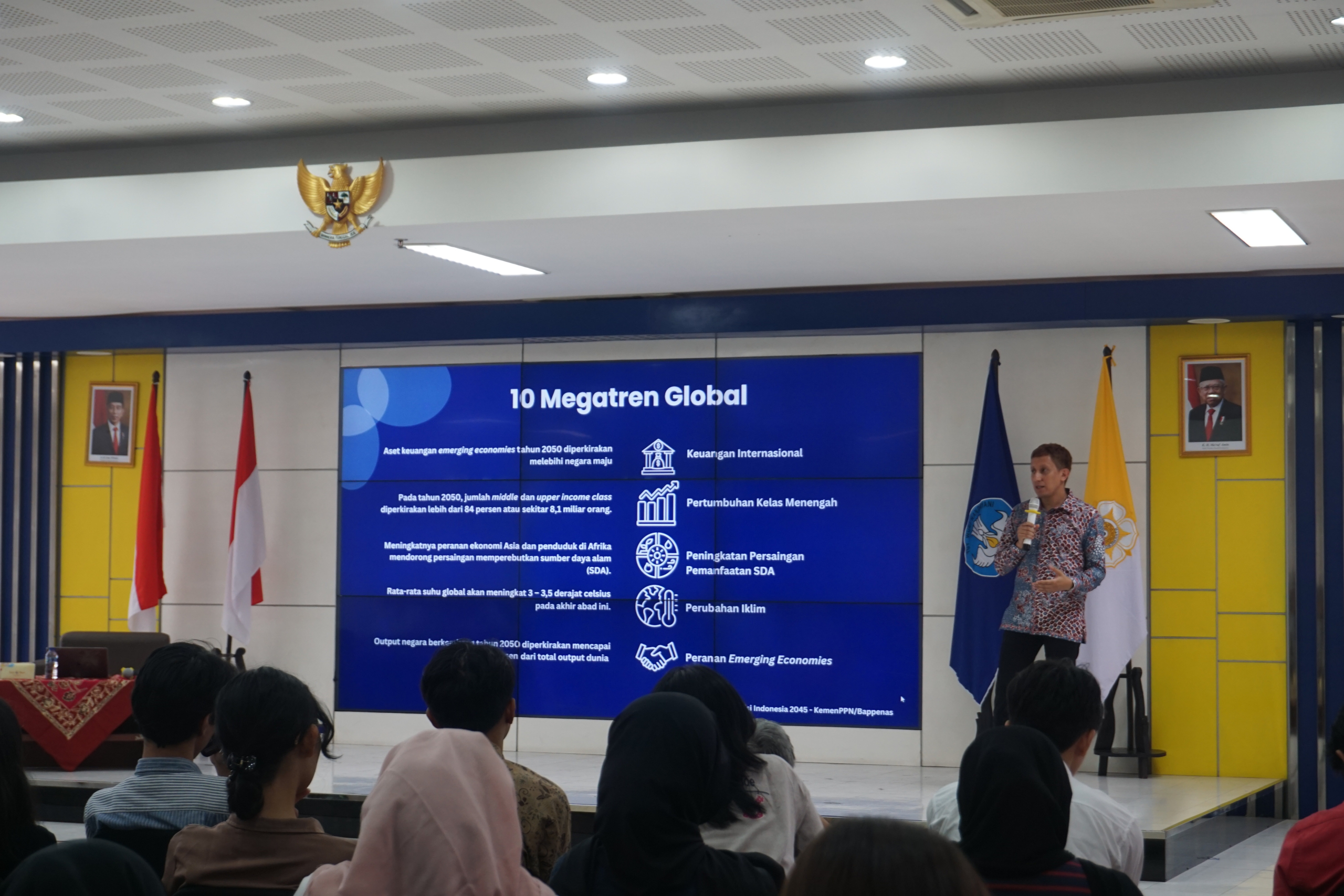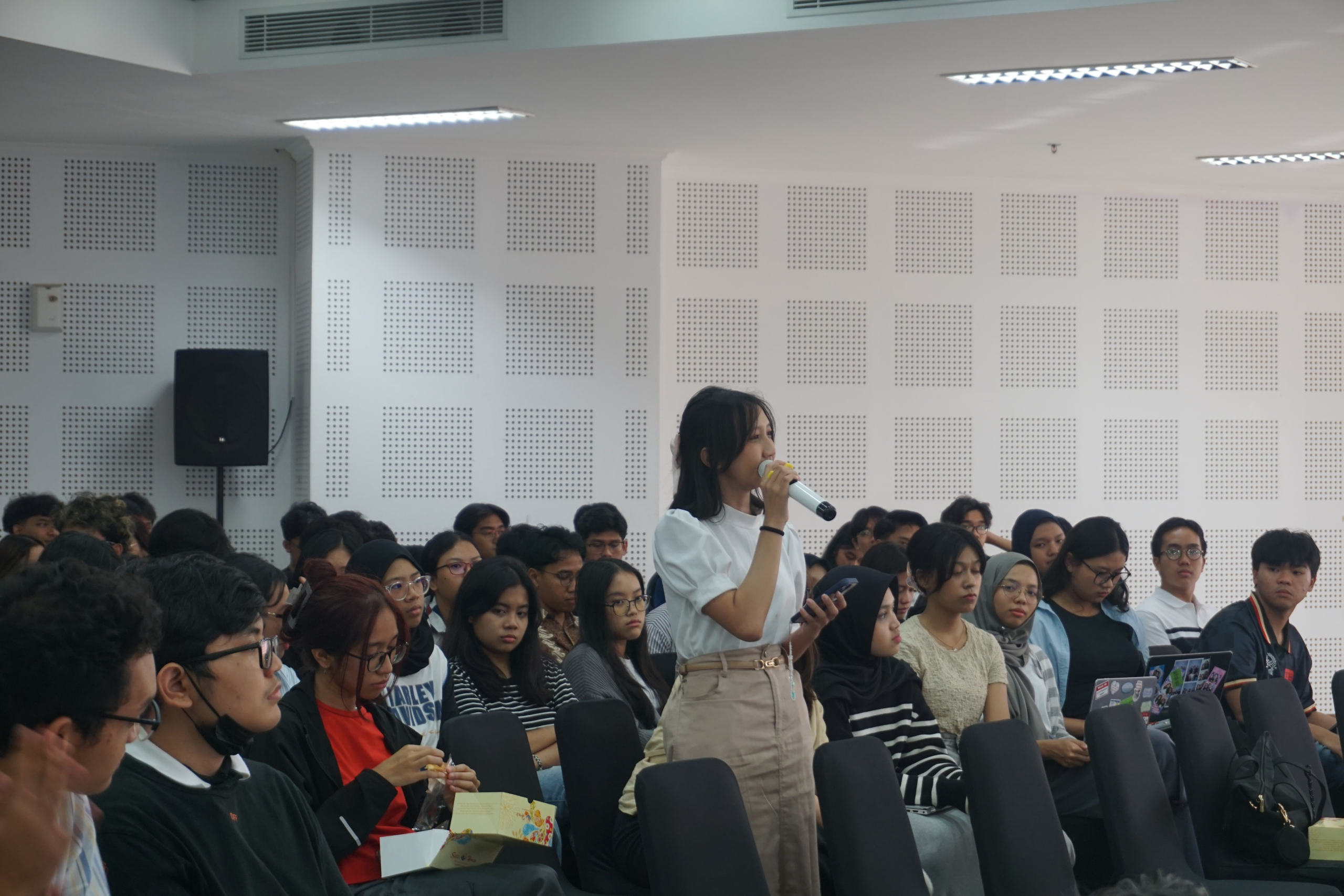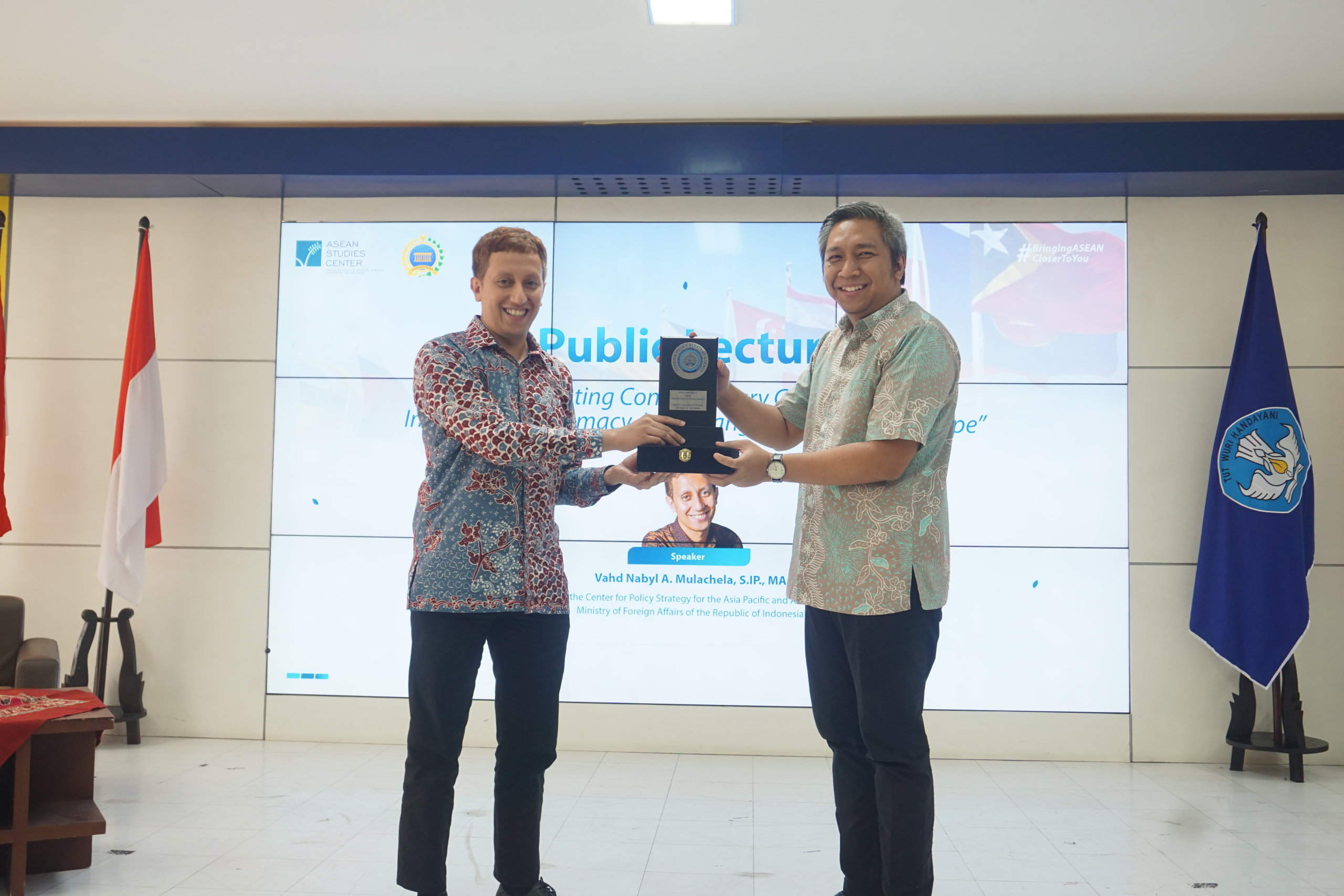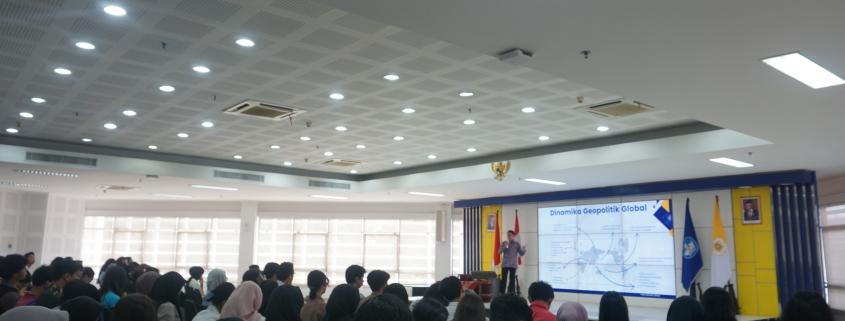Public Lecture on “Navigating Contemporary Challenges: Indonesian Diplomacy in a Chanching Global Changes”
On September 12, 2024, the ASEAN Studies Center of Universitas Gadjah Mada and the Ministry of Foreign Affairs of the Republic of Indonesia held a public lecture entitled “Navigating Contemporary Challenges: Indonesian Diplomacy in a Changing Global Landscape,” with speaker Vahd Nabyl A. Mulachela, S.IP., MA, Director of the Center for Policy Strategy for the Asia Pacific and Africa Region. In his presentation, Vahd Nabyl discussed various global challenges and trends that affect Indonesia’s diplomacy today, as well as how the country can play a role in navigating the ever-changing dynamics of global geopolitics.
Global Challenges and Diplomacy Priorities
The speaker explained various global megatrends, including the rivalry between the United States and China, the rise of populism, and threats to stability in regions such as the Taiwan Strait and the Korean Peninsula. He also discussed other issues such as human trafficking, illegal fishing, and the role of US military bases in the region. Other global challenges to be faced in 2024 include environmental risks, artificial intelligence (AI), and political polarization in society.
Vahd Nabyl emphasized that Indonesia’s foreign policy priorities (POLUGRI) include strengthening economic diplomacy, protecting Indonesian citizens, and increasing Indonesia’s role in the region and the world through international forums such as the G20 and ASEAN leadership. In addition, the speaker also highlighted the importance of strengthening Indonesia’s diplomatic infrastructure through representative offices abroad.

Roles and Challenges of Indonesian Diplomacy
According to Vahd Nabyl, Indonesian diplomacy functions in four main roles: representing, protecting, negotiating, and promoting national interests. In addition, diplomacy also has a non-formal role, namely as a bearer of a positive image, a mediator of conflict, and a problem solver. The challenges faced by diplomats include assignments in countries in conflict, culture shock, and financial and family problems.
To be able to survive in dynamic diplomatic tasks, Vahd Nabyl emphasized the importance of idealism, broad thinking, a spirit of learning, and a love for the work being carried out. Indonesian diplomacy has also played a role in strengthening economic and political cooperation in the region, such as through the Indonesia-South Korea economic cooperation forum that discussed the creative economy and public diplomacy.

Human Rights Issues and the ASEAN Non-Interference Principle
In a question and answer session, Vahd Nabyl responded to the issue of human rights (HAM) in ASEAN, especially related to Myanmar. He explained that although ASEAN applies the principle of non-interference, member countries have put diplomatic pressure on Myanmar. ASEAN, he said, is trying to maintain a balance between intervention in the domestic affairs of member countries and maintaining togetherness as a community.

Indonesia’s Optimism in the Asia-Pacific
Closing the public lecture, Vahd Nabyl spoke about the prospects for Indonesian diplomacy in the Asia-Pacific region in the next 10 years. He is optimistic that Indonesia can play a role as a facilitator amidst the rivalry of major powers in the region, especially through the ASEAN Road to Indo-Pacific vision, which focuses on the inclusive involvement of regional countries.
This public lecture is a reminder of the importance of adaptive diplomacy amidst the ever-changing global dynamics.




Leave a Reply
Want to join the discussion?Feel free to contribute!